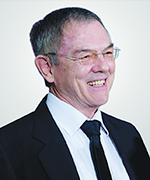

Engineering is a complex, ever-evolving world that demands change within organisations and the way in which they are run. A long-dormant clause in an Act of government is set to enforce new strictures on directors and managers imminently, with serious implications in the form of penalties and possibly even sanctions.
Why now, suddenly?
The Professional Engineering Act is catching many business owners and managers unprepared. Originally gazetted in 2000, one particular clause in the Act which defines ‘Engineering Work’ has been forced to wait in the wings. It eventually passed all hurdles and has now been thrust into the limelight. Unbeknown to many technical staff and their companies’ management teams, it is they who are expected – or rather, legally obligated – to perform at centre stage.
At the risk of being undiplomatic, my question to the management staff of businesses (including financial, technical, quality and legal departments) is: Are you aware of the impact of this law from 2000, and have you considered its impact on your business, or are you waiting and hoping that by ignoring it, it will all go away?
The reason I am putting this message out now is to alert the engineering industry at large to the urgency with which individuals and their companies must ensure they comply with the Act. Compliance with ‘Engineering Work’ standards, as (eventually) defined in the Act only last year, will come into effect at the start of 2025. Two and a half years might seem like a long time from now, but registration of technical staff (not just engineers) must be performed by the end of 2022 in some cases – read on for more granular detail of who, and by when.
What hoops do I have to jump through?
As from 1 January 2025, people doing ‘Engineering Work’ need to do so under the supervision of a registered person, or face a possible fine of up to twice the salary they earned while doing said work. Another complication is that many managers, despite understanding the engineering work their own organisation conducts inside-out, do not know what ‘Engineering Work’ is in the context of the Professional Engineering Act. Quality managers, in particular, are responsible for ensuring that their organisation is aware of all legal Acts that have an impact on their business.
The registration of applicable persons falls under the purview of the Engineering Council of South Africa (ECSA). Besides registering with ECSA, staff must also obtain Continuing Professional Development (CPD) points to stay up to date with the knowledge and skills necessary to support their businesses. Obtaining CPD points means that technical staff must be given the opportunity to join a Voluntary Association, attend courses, seminars, exhibitions and similar events that have secured the necessary CPD status. Individuals are required to obtain 25 points in three categories over a five-year cycle to remain registered.
How do I go about registering?
As a non-profit statutory body, ECSA does not have unlimited resources – that goes not only for finances, but also time (particularly given the urgency of this matter) and qualified assessors, who must themselves be registered with the Council. What is more, the review process is intense and time-consuming in order to ensure fairness while also adhering strictly to the prescribed regulations.
As such, in my capacity as CEO of the Society for Automation, Instrumentation, Mechatronics and Control (SAIMC – an ECSA-affiliated association), I issue the following call to action for all individuals and businesses affected:
• Investigate this Act, together with the applicable Government Gazette. They are both available on the ECSA website as well as the SAIMC website.
• Allow your technical staff to join a Voluntary Association and assist with the duties of the association’s committees. Apart from serving the industry, it will also give them CPD points.
• Allow your staff to attend CPD-accredited events like training courses, exhibitions and the like. Apart from gaining knowledge and skills to strengthen your business, they will also obtain the CPD points they need to remain registered.
The registration of technical staff is already underway, and has been split up alphabetically in order to manage the process as effectively and efficiently as possible:
• Last names starting with A through K need to register in 2022.
• Last names starting with L through Q need to register in 2023.
• Last names starting with R through Z need to register in 2024.
• Anybody can register at any time – before or after the scheduled year – however, those who need to register in that specific year receive preference.
For supporting information and documentation, visit www.ecsa.co.za or www.saimc.co.za, and direct any queries to the contact details published on the websites.
| Tel: | +27 11 312 2445 |
| Email: | [email protected] |
| www: | www.saimc.co.za |
| Articles: | More information and articles about SAIMC |

© Technews Publishing (Pty) Ltd | All Rights Reserved